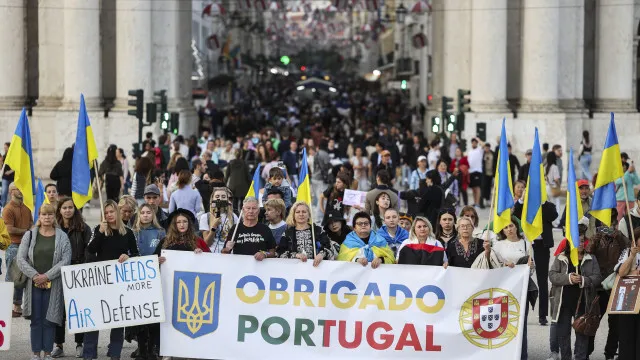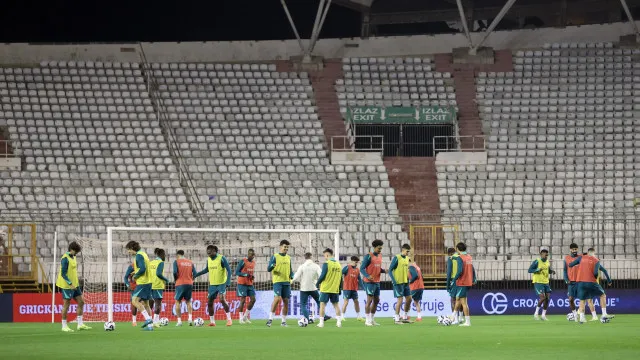Georgia. Thousands of protesters in the streets after approval of the "Russian law"
Thousands of Georgians rallied in the capital Tbilisi on Sunday after parliament approved a controversial bill on “foreign influence,” dubbed the “Russian law” because of its resemblance to legislation used by Moscow to silence critics.
© GIORGI ARJEVANIDZE/AFP via Getty Images

Mundo Geórgia
In front of the parliament, some 2,000 protesters gathered and chanted "No to the Russian law!" as they were surrounded by a heavy police presence, an AFP correspondent on the scene said.
The demonstrators later blocked a major artery in the city centre.
Thirteen protesters were arrested "for disobeying police orders", the interior ministry said.
In a sign of the tensions, elected representatives from the majority and opposition clashed during the debates. Similar brawls have erupted in recent weeks.
Protests against the text, which targets media outlets and non-governmental organisations (NGOs) receiving foreign funding, have been ongoing for more than a month.
Pro-Western Georgian President Salome Zurabishvili is expected to veto the text, but the ruling Georgian Dream party says it has enough votes to override her.
"We will protest until this Russian government leaves our country!" vowed Salome, a 20-year-old protester, shortly after the vote.
"They are trying to erase the last 30 years," or the path taken since the fall of the USSR, said Mariam Javakhichvili, 34, earlier in the day amid the crowd of protesters.
NGOs vowed Friday that despite pressure and intimidation, they would never submit to the newly adopted law.
Baia Pataraia, who heads one of Georgia's leading women's rights groups, woke up one morning to find posters with her picture around her neighbourhood, branding her a "foreign agent".
The government insists the law is simply meant to force organisations to be more transparent about their foreign funding, arguing that groups like Pataraia's represent a risk to Georgia's sovereignty.
But the young activist rejects the accusation: "Everything I do, I do for my people, for my country, and for no one else, really."
Shortly before the vote, an EU spokesperson reiterated that adopting the text would represent a "serious obstacle" to the country's path towards joining the bloc.
US Deputy Assistant Secretary of State James O'Brien, who met Georgian Prime Minister Irakli Garibashvili in Tbilisi on Friday, warned that Washington would impose "financial sanctions and visa restrictions on those involved" and review the $390 million in aid it has allocated to the country this year.
In Britain, Europe Minister Nusrat Ghani called on the Georgian government to "withdraw this legislation".
Lithuanian Foreign Minister Gabrielius Landsbergis told AFP on Friday that he would travel to Georgia with his Icelandic, Estonian and Latvian counterparts to express their "concerns to the political leadership".
Portugal's foreign ministry also expressed "deep regret" over the parliament's adoption of the law on Friday.
Kremlin spokesman Dmitry Peskov on Friday hailed "the Georgian leadership's firm desire to protect their country from any blatant interference".
The controversy over the text has also highlighted the influence of Bidzina Ivanishvili, a wealthy businessman seen as Georgia's shadow ruler.
Prime minister from 2012 to 2013 and now chairman of the Georgian Dream party, he is suspected of being close to Russia, where he made his fortune.
While claiming to want to bring Georgia closer to the EU, he has recently made hostile statements towards the West and sees NGOs as an internal enemy, in a country that holds parliamentary elections in October.
Read Also: Georgia: MPs in new brawl over 'foreign agents' law (Portuguese version)


Descarregue a nossa App gratuita.
Oitavo ano consecutivo Escolha do Consumidor para Imprensa Online e eleito o produto do ano 2024.
* Estudo da e Netsonda, nov. e dez. 2023 produtodoano- pt.com




















